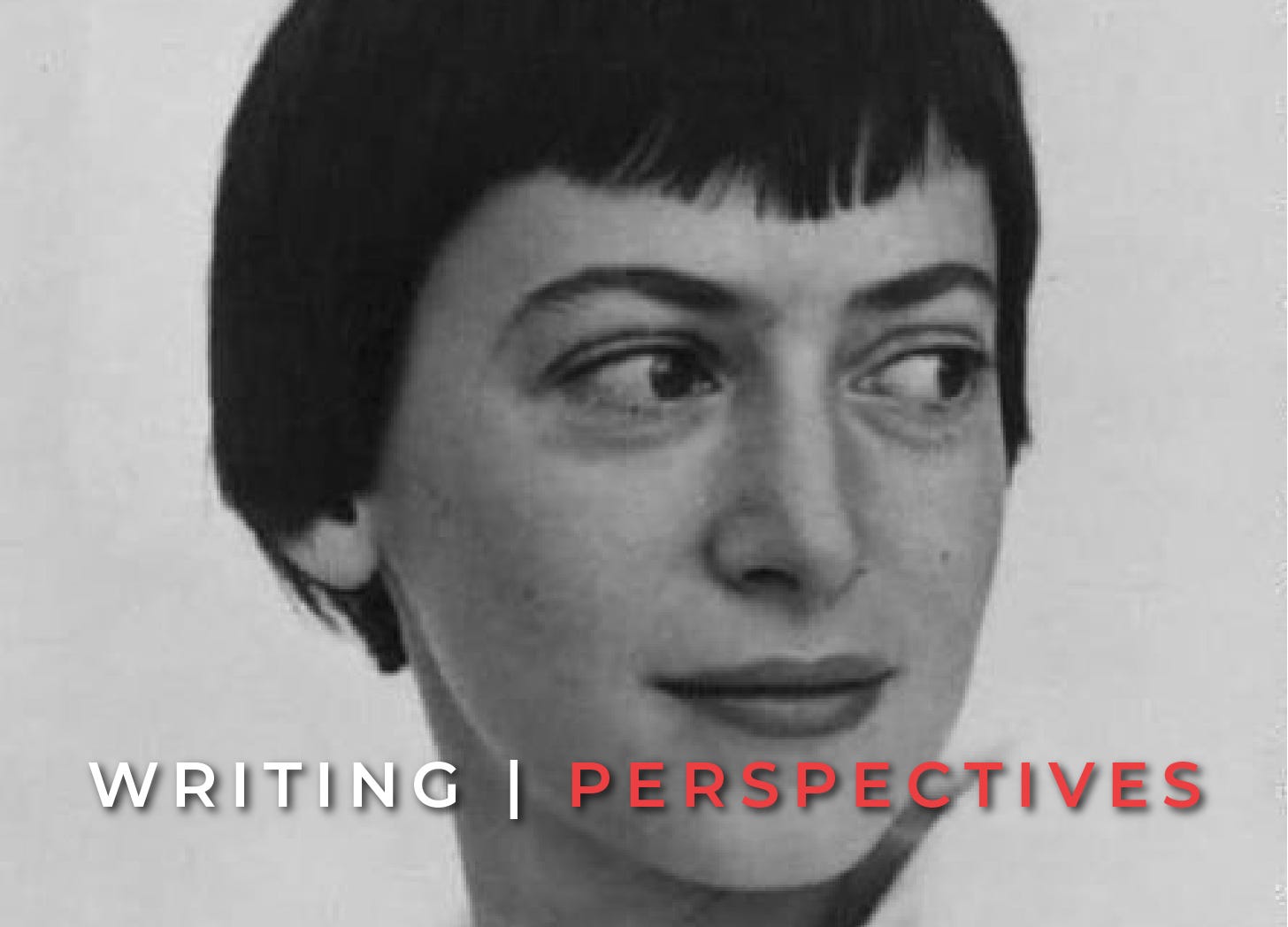Ursula K. Le Guin: Storytelling, Language, and the Shaping of Identity
“The daily routine of most adults is so heavy and artificial that we are closed off to much of the world."
In an interview with Jonathan White, sci-fi writer Ursula K. Le Guin shares her perspectives on:
The role of art in our lives
The sacredness of storytelling
The significance of language
Giving voice to experience
Storytelling and identity
…and more.
If you want to support my work, please share it with someone (it helps so much).
The Role of Art in Our Lives
“The daily routine of most adults is so heavy and artificial that we are closed off to much of the world. We have to do this in order to get our work done. I think one purpose of art is to get us out of those routines. When we hear music or poetry or stories, the world opens up again. We’re drawn in — or out — and the windows of our perception are cleansed, as William Blake said. The same thing can happen when we’re around young children or adults who have unlearned those habits of shutting the world out.”
The Sacredness of Storytelling
“Our culture doesn’t think storytelling is sacred; we don’t set aside a time of year for it. We don’t hold anything sacred except what organized religion declares to be so. Artists pursue a sacred call, although some would buck and rear at having their work labeled like this. Artists are lucky to have a form in which to express themselves; there is a sacredness about that, and a terrific sense of responsibility. We’ve got to do it right. Why do we have to do it right? Because that’s the whole point: either it’s right or it’s all wrong.”
History as Storytelling
“History is one way of telling stories, just like myth, fiction, or oral storytelling. But over the last hundred years, history has preempted the other forms of storytelling because of its claim to absolute, objective truth. Trying to be scientists, historians stood outside of history and told the story of how it was. All that has changed radically over the last twenty years. Historians now laugh at the pretense of objective truth. They agree that every age has its own history, and if there is any objective truth, we can’t reach it with words. History is not a science, it’s an art.”
The Significance of Language
“As a writer, you want the language to be genuinely significant and mean exactly what it says. That’s why the language of politicians, which is empty of everything but rather brutal signals, is something a writer has to get as far away from as possible. If you believe that words are acts, as I do, then one must hold writers responsible for what their words do.”
Restructuring Language and Society
“We can’t restructure our society without restructuring the English language. One reflects the other. A lot of people are getting tired of the huge pool of metaphors that have to do with war and conflict [and] the proliferation of battle metaphors, such as being a warrior, fighting, defeating, and so on. In response, I could say that once you become conscious of these battle metaphors, you can start ‘fighting’ against them. That’s one option. Another is to realize that conflict is not the only human response to a situation and to begin to find other metaphors, such as resisting, outwitting, skipping, or subverting. This kind of consciousness can open the door to all sorts of new behavior.”
Giving Voice to Experience
“One of the functions of art is to give people the words to know their own experience. There are always areas of vast silence in any culture, and part of an artist’s job is to go into those areas and come back from the silence with something to say. It’s one reason why we read poetry, because poets can give us the words we need. When we read good poetry, we often say, ‘Yeah, that’s it. That’s how I feel.’”
Storytelling and Identity
“Storytelling is a tool for knowing who we are and what we want, too. If we never find our experience described in poetry or stories, we assume that our experience is insignificant.”
Source: Talking on the Water: Conversations about Nature and Creativity.
Thanks for reading! I post writing-related content like this three times a week. If you want access to the full archive, consider upgrading to a paid subscription. You can also help me grow by sending this to a friend. Thanks, and see you next time!





